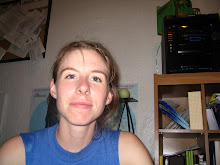I had not heard of cloud computing before this. I have mixed feelings. On the one hand, what a useful tool. People and companies can access software and computing capabilities without having to install it. It seems as if the services are immediately available on the Net.
But not owning the applications seems as if we would end up having some of the problems we have with databases. There is no guarantee that it will be available in the future or that we will have access to it. If it changes how will we be able to access our old material? Everything seems to cycle though, getting to one extreme and then reacting. It is weird to me that in many senses we are moving toward individualism and smaller ways of living and then there is this other trend towards the collective.
I had the same mixed feelings towards the article about the future of libraries. In many ways the changes that could occur in libraries is exciting to me and I look forward to them, especially the transformation of libraries into cultural centers. In many ways, libraries are already moving that way with the inclusion of music and films among others included in collections. Some parts of the article scare me. Can libraries keep up with the changes? More importantly, can library employees make the changes? How can we handle the continuing pressure to do more? It is hard for me to see how the library is going to change. So many people currently in the field that I have talked to have no concern for theories and trends in librarianship. They do the day to day work and don't think about what is next. I find it discouraging. Using the tools we learned about in this class in a library setting is exciting to me, but I don't know where I will find a library that is embracing these world views.
This week I commented on Sr. Becky's blog and Nelida's blog
12 years ago
